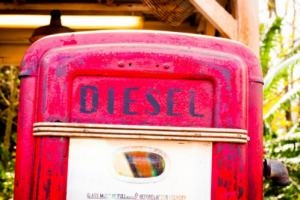Automobiles run on various kinds of fuels that have different characteristics. While petrol and diesel are the most commonly used fuel types for all sorts of vehicles, other varieties of fuel are also gaining popularity.
Major types of fuel
Each fuel type has certain pros and cons. Let us look at some the most well-known fuel options for vehicles:
- Petrol
Petrol, also known as gasoline, is the most popular kind of automobile fuel. It is a fossil fuel that is perfect for four-stroke engines. Since most cars have these kinds of engines, they account for a significant share of the total petrol consumption.
Petrol allows cars to start quickly and accelerate at a good rate. Unfortunately, petrol produces carbon monoxide and carbon dioxide which pollute the atmosphere and contribute to global warming and are also a health hazard for people.
Since petrol is a non-renewable resource, it will not last forever and will eventually be used up. This is the reason why major oil companies in the world are looking for ways to create a practical synthetic fuel which could be used after gasoline is no longer available.
- Diesel
Diesel is used in heavy duty vehicles like trucks, buses, boats, trailers, trains, tractors, and so on. They are also the primary fuel choice for electricity generators. Diesel does not create as much carbon dioxide as petrol, but it does create various chemical compounds, like nitrous oxide, that produce smog and make it difficult for people to breathe.
Diesel engines are extensively used in the industrial and commercial transport sectors because they are much more fuel efficient than petrol based engines and have a greater power output.
- Liquefied Petroleum
Liquefied petroleum is commonly known as propane. It is a much cleaner fuel type than gasoline, but is not as widely used as the other types of fuel. Hybrid vehicles are also available in the market that can use both petrol and Liquefied petroleum. The main advantage of using liquefied petroleum is that it is much cheaper than petrol.
- Compressed natural gas
Compressed Natural Gas, or CNG, is a compressed form of natural gas, which is mostly methane. It is colorless gas and does not have an odor. This type of fuel is eco-friendly because it does not produce toxic gases that can harm human health. It also associated with very low level emissions of chemicals that deplete ozone layer.
- Ethanol
 Ethanol might replace petrol in the future if the current trend of its usage continues. It is made from natural materials like corn, barley, and sugar cane. This fuel can directly be used for petrol based engines without making any changes to them.
Ethanol might replace petrol in the future if the current trend of its usage continues. It is made from natural materials like corn, barley, and sugar cane. This fuel can directly be used for petrol based engines without making any changes to them.
E10 is fuel type that is created by mixing 90% of petrol with 10% of ethanol. Ethanol is also very eco-friendly and the only downside of using ethanol is that it is not cheap.
- Bio-diesel
Bio-diesel is manufactured from natural products like palm oil, sugar beet, corn oil, and rapeseed. It is also much less polluting than diesel or gasoline. However, the number of cars using bio-diesel as a fuel is much lesser than the ones using petrol or diesel.
- Methanol
Methanol, also known as wood alcohol or methyl alcohol, is not as popular as the other fuel types. It is a colorless liquid with a chemical composition that is simpler than ethanol. Methanol has a high-octane value and is an ideal fuel type for racing cars.
John W. Kennedy is a well-renowned supplier of quality petroleum storage tanks and containers. If you are looking for reliable fuel management equipment and petroleum tanker parts, get in touch with us.
You can reach our customer support team by calling 1.800.238.1225.




